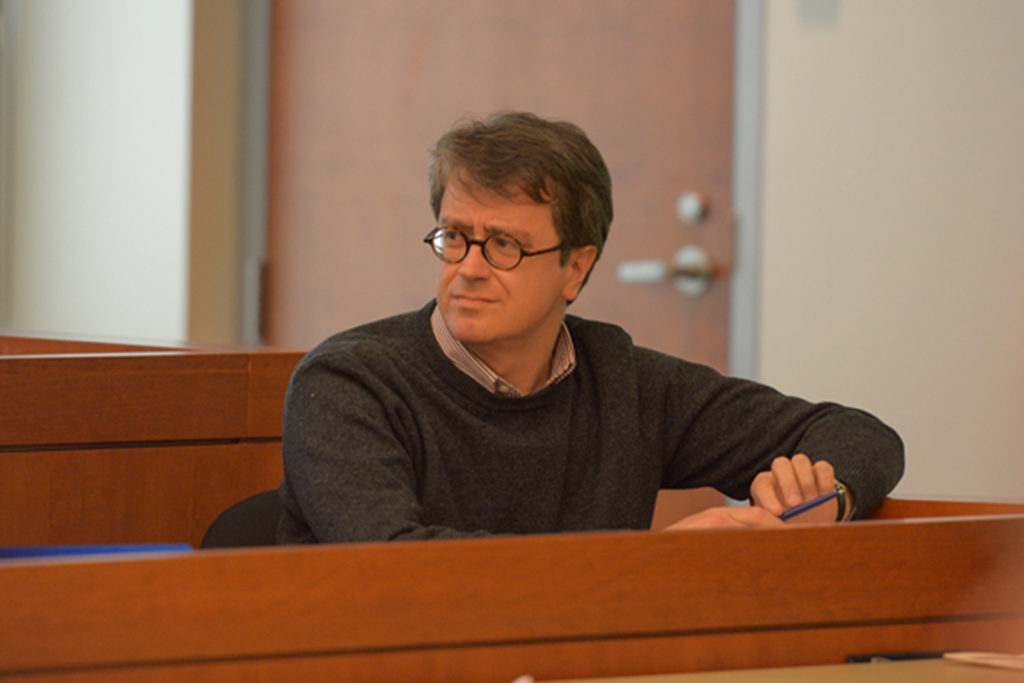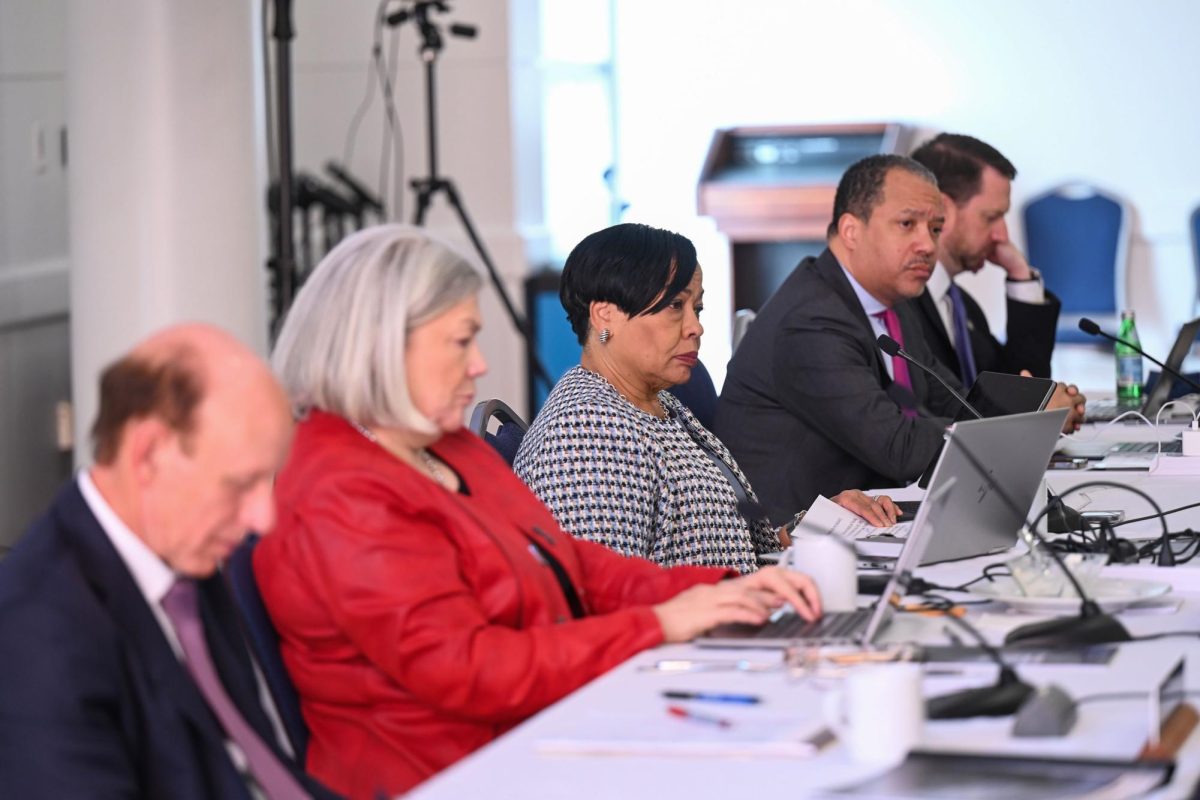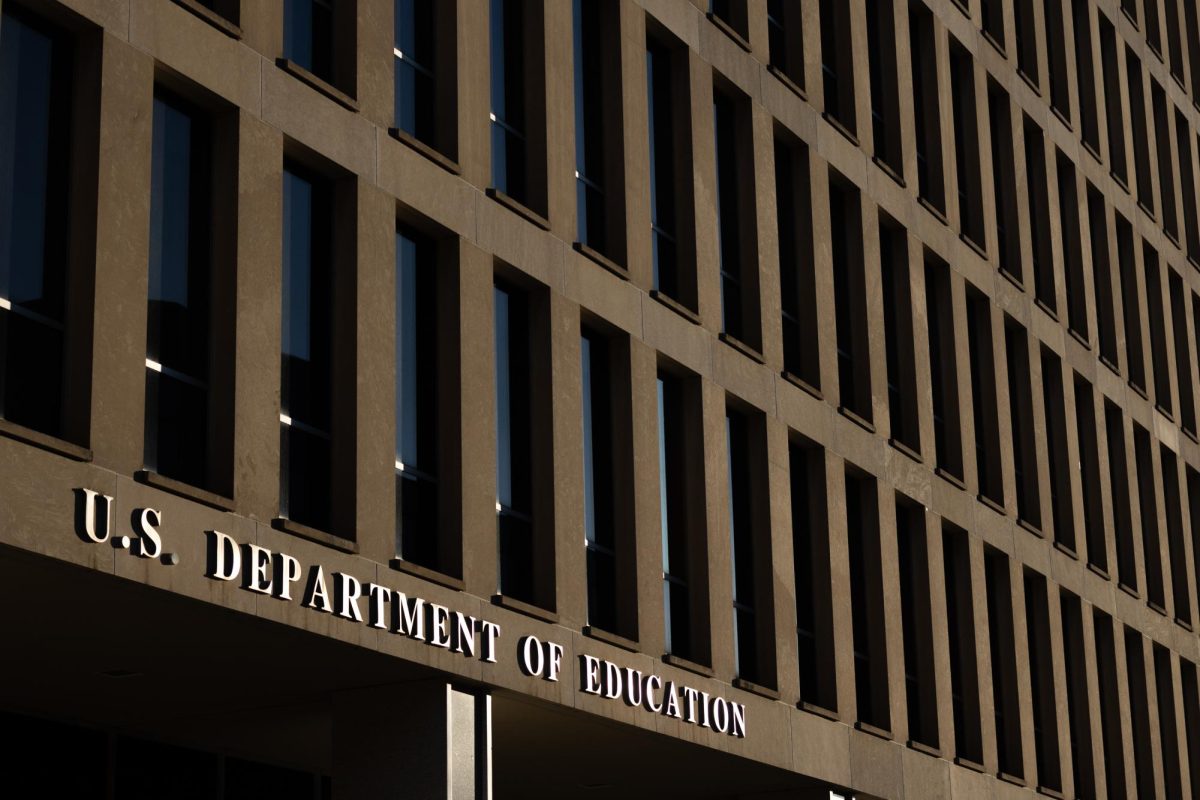The Faculty Assembly overwhelmingly voted Wednesday to launch a faculty-wide survey about University President Thomas LeBlanc’s leadership and communication abilities, which could lead to an indication of no confidence.
The assembly, which is open to all faculty members with full-time faculty as voting members, directed the Faculty Senate to launch the survey and subsequently report its results to the assembly in a 152-25 vote. Arthur Wilson, the chair of the senate executive committee, had signaled support for conducting the survey at the last senate meeting, and the move came following a tense standoff over the assembly’s ability to conduct online voting.
Guillermo Orti, a faculty senator who presented the petition calling for the survey, said the survey will allow faculty to express their “sentiments” about GW’s leadership.
“The senate has already started preparing an instrument for getting this information,” he said. “I believe it will be a most welcome perspective to get this by the faculty for the faculty.”
Hundreds of faculty, staff and students have called on LeBlanc to resign in recent months, citing officials’ response to the COVID-19 pandemic and other controversial decisions.
The survey could lead to an indication of no confidence, censure, approval, praise or trust in LeBlanc and the administration, the approved petition states.
Charles Garris, a faculty senator and former senate executive committee chair, said the survey would be “inappropriate” because it would only create a “complete spectacle.”
“You can see from the language of the petition that the faculty have some objective in mind,” Garris said. “This is not a well-meaning survey. This is a malevolent action taken by a group of faculty. This is not something we should entertain.”
Board of Trustees Chair Grace Speights said trustees will conduct a performance review of LeBlanc beginning early next year.
“This process is driven by the Board of Trustees – it is one of our most important responsibilities,” she said at the meeting. “Given this time table, we will not consider other feedback for the president’s evaluation until the process begins in early spring.”
LeBlanc did not immediately return a request for comment through a spokesperson.
The petition’s passing followed a lengthy debate over faculty’s ability to vote online during the assembly.
Just after LeBlanc began the meeting, Harald Griesshammer – a faculty senator and associate professor of physics – called for online votes to be permitted. But LeBlanc accepted Parliamentarian Steve Charnovitz’s assessment that the Faculty Organization Plan required faculty to be “present” to vote, which he said does not extend to virtual meeting platforms.
“We’ve always interpreted that for as long as I’ve been parliamentarian to mean physically present in the room,” Charnovitz said. “We’ve had requests for many years for faculty to be able to vote from their office or call in their vote. We’ve always maintained that remote voting is not permitted, so it’s still not permitted today.”
Griesshammer said online voting should be permitted since the meeting was conducted entirely virtual.
“The fact that the president just gaveled the meeting actually establishes that we can vote,” he said. “It specifies as a meeting place the WebEx Events 3000 platform. They cannot be disenfranchised.”
Griesshammer later asked for unanimous consent that the rules be suspended, which would permit online voting, but his motion received “quite a few” objections, officials said. The objections were submitted through a private chat and were not made public.
Jamie Cohen-Cole, a faculty senator and associate professor of American studies, motioned to appeal LeBlanc’s ruling, adding that the meeting had been postponed by more than a month to ensure votes would be “fair, complete and transparent.”
Charnovitz said the motion was “unprecedented” and has not been offered in the 60-year history of shared governance at GW and asked LeBlanc to declare the motion “frivolous.” He added that faculty could not vote to appeal the ruling because online votes were unauthorized.
“Holding such a vote is impractical because, as the chair has ruled, online voting is not allowed,” he said. “For obvious reasons, online voting cannot be applied to overrule the chair’s holding that online votes are not allowed. I see no benefit to engage in a repetitive cycle of appeals and points of order.”
The independent Faculty Association called on its members to leave the meeting in protest over the ruling.
“GWUFA recommends that all participants walk out of the Faculty Assembly now,” the group said in an email to members during the meeting. “If you choose, please use the chat to state your reasons why.”
Later in the meeting, the assembly unanimously consented to a narrower motion allowing for faculty to vote online solely on the petition.
The petition states the survey shall be launched by Dec. 15. The survey’s complete results along with recommendations and comments by the senate shall be reported to the assembly by Jan. 31, according to the petition.











